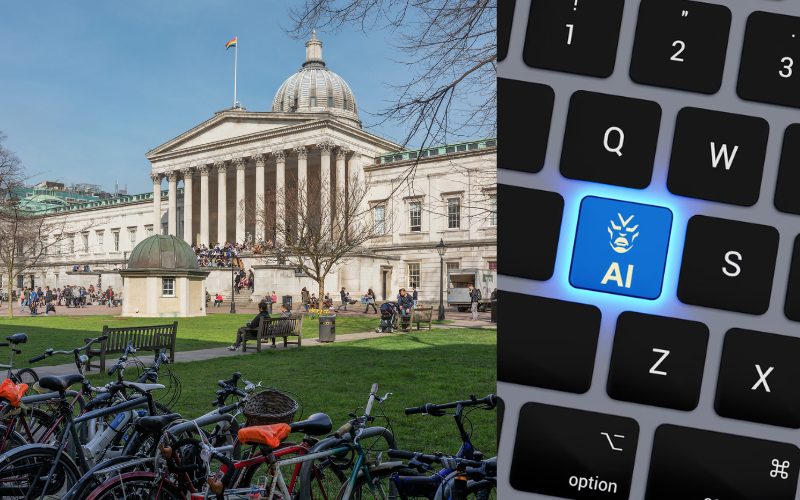Across the UK, approaches to AI in educational institutions remain inconsistent.
While some universities across the UK are offering little or no AI support, other schools are learning to embrace the change — UCL being one of them.
UCL’s Associate Professor in Machine Learning and Creative AI, Anthony Bourached, said: “You don’t want to take a reductionist approach with the use of technology, you want to take an empowering approach.
“If we figure out how to use it in the right way, it broadens the beach head of creativity that we can have as humans.”
A recent YouGov poll revealed that 66% of UK university students use AI to complete their work in some capacity.
Out of these students, almost a quarter stated they use AI to ‘cheat’, or in other words, using it against university guidelines.
UCL have clear and progressive guidelines uploaded to their website on how to use AI ‘effectively, ethically and transparently‘.
Almost a fifth of students in the poll said their universities still have strict bans or no regulation at all on AI use.
Bourached said: “As a student you need to be given the tools, you need to be told how to use the tools, and if you’re not then you’ll figure out whatever you need to do in order to get the job done.”
The professor suggested that when students are not taught how to use these new toolsets, it leaves more room for improper use.
This view seems to be echoed across departments, with UCL Environmental Sciences Dean Gail Taylor emphasizing the need for efficient training for students.
UCL Environmental Sciences Dean, Gail Taylor said: “Universities need to strike a balance in training students to effectively develop and use these tools.
“We are still grappling with this transition.”
The university hosted two 2024 Nobel Prize winners Geoffrey Hinton and Demis Hassabis recently, two prominent figures in the AI world.
This push for AI exposure outside of the classroom has resonated with students, many of whom seem eager to embrace the changing landscape.
Izaak Laskey, 22, did both his undergraduate and masters degree at UCL, is now working within an AI industry, and has credited UCL’s internship program.
The history graduate said: “UCL’s approach to AI completely changed my relationship with it, personally and professionally, it changed my life.”
Laskey found the job through one of UCL’s internship partners, and now works as a Branding and Marketing Specialist at Motics, an AI platform.
However, his opinion of UCL’s approach was not entirely positive.
He said: “I actually think the university could do more to promote its use.
“I think they need to explain how to use it effectively and how to use it so it benefits you.
“Rather than being driven by fear of change, embrace it.”
When asked about the future of AI in universities, consistently it was suggested that schools must keep up with developing technologies, or face the consequences.
Bourached said: “I think it’s a serious problem we face, but there’s also potential opportunity.
“We’ve never faced a situation where the tools that we have access to as humans is improving so fast, so it’s really an open question of whether Universities are able to adopt fast enough to actually teach students how to use the tools and expand their thoughts.”
Image Credit: Composite of BoliviaInteligente Unsplash and David Iliff Wikimedia Commons https://commons.wikimedia.org/wiki/File:Wilkins_Building_2,UCL,_London-Diliff(cropped).jpg





